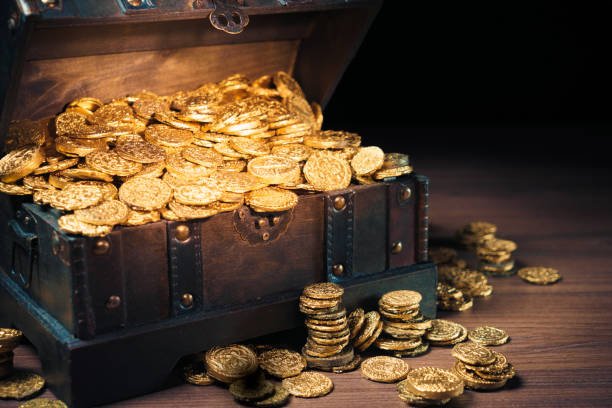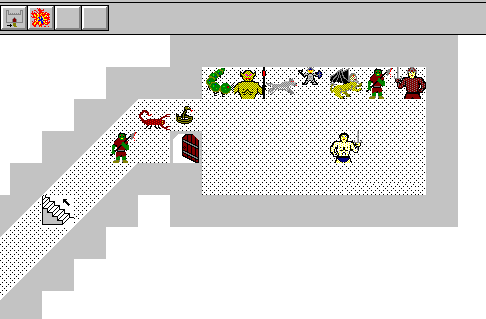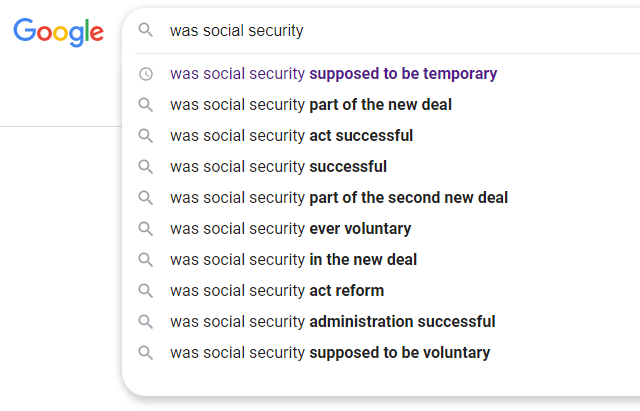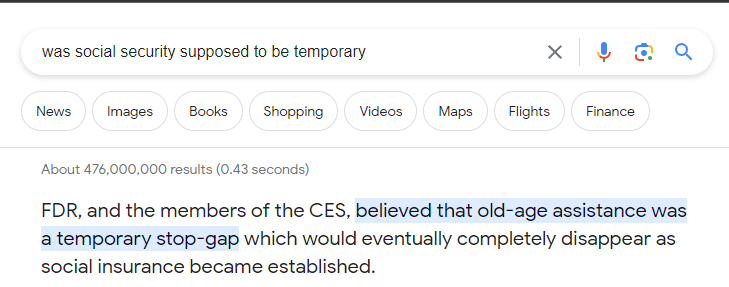
Valuable resources are scarce.
That's what makes them valuable in the first place.
Of course just because something is scarce doesn't mean it has value.
Cancer has no value no matter how rare it is.
The demand for cancer is zero (unless you're being paid to cure it).
Supply and demand 101.
Products that have low supply and high demand end up with inflated prices. Normally we think of scarcity as a bad thing. Wouldn't it be nice if everyone had all the resources they wanted? Given the context of artificial scarcity this is even more true. When a corporation makes their product more scarce on purpose just so they can charge more to the end user... that tends to be a pretty enraging strategy for everyone else. And yet it happens every day and many consider it a necessary evil within capitalistic systems.
During the Great Depression it was recognized that artificial scarcity was so important that farmers were literally being paid to not do their job and not flood the market with whatever they were producing. It was decided that the deflationary pressures of oversupply would hurt the economy more than help it. Can we be certain that this was the right thing to do? I'm certainly not certain, but I am quite sure that such extreme measures should only be temporary in nature to address some other emergency. Unfortunately government red-tape never allows these "emergency measures" to be rolled back. Look no farther than Social Security for the perfect example... look at how well that's going today.

Society has proven time and time again that the economy and abundance do not mesh well. Technology creates abundance, and that abundance creates destructive waves throughout the ecosystem that can shatter entire business models. It wasn't that long ago that VHS tapes were being sold for over $100 a piece. Given this high price it wasn't worth it for the average person to own a VHS tape, and the entire rent-seeker's market of video stores was generated from it. Now Blockbuster is a completely busted ecosystem that crashed to zero quite spectacularly; all because abundance & technology (torrents and streaming) gutted that entire business model.
When is artificial scarcity good?
We often like to focus on the bad things that "shouldn't" exist like corporate greed and the exploitation of the masses. However, artificial scarcity is a necessary backbone for currency itself. And thus this extends downwardly into cryptocurrency as well. If Bitcoin was abundant and anyone could mint tokens the entire network would be completely worthless (see: shitcoins). Just like if anyone can download a movie then Blockbuster becomes completely worthless. The difference is we want crypto to have value, while random rent-seeking markets can come and go with the wind without making too many waves within the larger economy.
Money is the foundation of the economy, so of course we want it to have value. Barter and direct trading without currency is something people don't do very often for a reason. These are low liquid markets that have difficulty matching up buyers and sellers. By introducing a currency as the middle man the entire process is smoothed out. The divisibility of currency allows us to trade any asset for the appropriate amount of currency. If my cow is worth 7.5 chickens it's not possible to deliver the chickens assuming they're still supposed to be alive after the transaction is made. Pricing everything in currency is a much easier way to do things. We call this unit-of-account (UOA).
UOA
Everyone knows how much a bag of apples costs. At least everyone knows that paying $10 for a single banana would be a huge ripoff (to the point of comedy). The ability to price everything in currency is quite useful to society as a whole, and is surely one of the biggest pitfalls of Bitcoin. As a deflationary asset that gains 100% value every year, the cost of assets relative to Bitcoin gets cut in half every year on average. That's bad for any currency and it's bad for any economy, but don't tell maximalists that. Let them figure it out the hard way.
Gaming
Another huge use-case for artificial scarcity is gaming. Basically any asset that is digital needs to have artificial scarcity otherwise it has no value. Unlike the real world, digital assets can technically be generated with the click of a button and produced in any quantity we like. Without scarcity the asset becomes worthless.

If a video game uses precious metals as a currency, how do we ensure that the currency doesn't become diluted to the point of irrelevance? Long story short we've never seen a single video game that's been able to accomplish such a feat, even though I believe it is easily possible. After all, if gold appears out of thin air after flipping a log, and gold has real value that players are willing to pay for, then it's guaranteed a bot will be created that does one thing: flips logs and sells the gold for 'real' money. It doesn't take long after that the economy becomes completely flooded with the currency and hyperinflation ruins the entire ecosystem.
Why do I think this is an easy problem to solve?
Well for one: Bitcoin has already solved it. Creating gold out of thin air just for playing the game is... shall we say... stupid. Game developers should stop doing the same thing over and over again expecting a different result. If gold becomes a non-infinite resource then it is guaranteed to have value assuming there are actually other valuable assets in the game that can be purchased with it.
Two different solutions
I came up with two separate solutions for this problem. The first one was only minting gold when the player takes a risk. No risk, no reward. The vast majority of bots that ruin gaming ecosystems are programmed to grind one specific thing. They don't take risks and if the bot dies in the game there is no penalty.
Creating mechanics in which getting gold requires the player to take a risk exponentially raises the bar in terms of what kinds of bots can ruin the ecosystem. If done correctly the only way gold could be counterfeit at that point is an AI bot that plays the game better than the average person. Unfortunately this idea was much better a few years ago before AI started becoming totally mainstream.
At this point in time there'd have to be another mechanic in play that identifies AI and bans it from the network. However the ability to ban players from the game introduces more attack vectors and potential exploits into the system (corrupt censorship). Perhaps this entire "solution" is a bust given recent developments in AI. Or perhaps not. It's never even been attempted.
Solution two
Just... copy Bitcoin. Say the game we are playing has resources scattered across the map. Every once and a while a mountain will have gold in it. If that mountain has a finite amount of gold inside of it then hyperinflation becomes impossible. All that needs to be balanced is how much gold is mined given how many resources were put into mining it over time. Looking at Bitcoin as a template, it would make sense to have the cost of mining increase over time while reducing the yield over time as well (like a halving event). This way there's a logarithmic hard-cap on how much gold can actually be extracted from said mountain.
Location location location.
In most video games logistics are non-existent (that's why I like the game Factorio so much because it's 100% logistics). If you're playing a first person shooter you're allowed to carry five fully automatic weapons including a large machine gun and a rocket launcher and 20 hand grenades and 1000 rounds of ammo. Spoiler alert: one person can't carry that much, but the game allows it because it's often a bad idea to make a game hyper realistic. Realism can make a game tedious, not fun, or just completely imbalanced or stupid.

In Role Playing Games the logistics are even worse. We can carry around 30 sets of armor and even teleport around to other cities without any problem whatsoever. I played the above game called Castle of the Winds way back in the day on a Windows 3.1 machine. It was one of the last RPGs to get created in which carrying too many things in your bag would weigh you down and make you slow. Turns out gamers don't like that mechanic, but I think for certain assets in-game logistics still makes sense.
In the context of gold mountains being scattered across the land that can be mined like Bitcoin, it would make a lot of sense that the location of the mountain matters. A mountain that is far away but still has a lot of gold left inside would not necessarily be the best place to mine. Sure, mining the gold would be cheap and easy, but actually getting it to where it needs to go would be expensive. Hiring miners and getting them safely to and from the jobsite could also be a totally necessary artificial complication. After all: every problem/quest in a video game is artificial and totally made up, without exception.
There's a reason why gold loses its value in locations in which huge deposits are found. The age-old adage "during a gold rush: sell shovels" applies today just as much as it did back in 1849. Why else would all these "crypto influencers" be selling you their day-trading secrets if those strategies actually worked? If they worked they'd be using them to become billionaires.
Those who cannot do: teach.
What I'm trying to say here is that I'd very much like to see a crypto RPG employ advanced economics in which assets can not be trivially moved from one location to another instantly without taking any kind of risk. Entire economies in the real world revolve around such logistics (cough Amazon), and I expect that crypto will have to think outside of the box to create something different that actually works. I speak for more than myself when I say that I'm damn tired of all these idle-mining nonsense games being pumped out that have zero substance.
Will I ever create my own game?
Eh! Maybe! Wen moon amirite? The overhead cost of development is high and everyone wants a payday. It's not easy being sleazy.
Conclusion
Technology creates abundance when left unchecked. This is a good thing in the long run but tends to be hugely disruptive to established economies in the short term. We can think of abundance as an earthquake that has the power to raze entire institutions. If that institution was corrupt it's difficult to call that a loss, however the shockwaves of such scenarios very rarely stay locally contained. Everyone is affected in some way. Economies are very complex and hard to predict organisms, not unlike actual biology itself.
I've been here long enough to know that the future of gaming (and many other industries as well) is going to be completely taken over by crypto. Those who do not transition to this superior way of doing things will be left in the dust wondering what just happened. Unfortunately these adaptations are not 1:1 transitions and can not be ported easily to the new paradigm.
There are far too many developers out there jamming a square peg into a round hole... and there are even more developers out there copying those failed models during the bull markets because it still makes money via ignorance, fomo, and rugpulls. We need better templates to show developers the way to the promised lands. All in good time.

